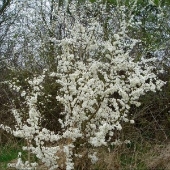Mike Haasl wrote:A question for the Doctor (or anyone else for that matter). If I want to save summer coffee grounds for composting in the winter, how could I do that? Could I dry them on a tarp and then store them? Or would they lose their goodness?
hi, we grow small scale salad crops on the west coast of eire. Twice a week after deliveries we collect used coffee grinds from our clients in 16 litres recycled buckets with a sealed lid, this is very important. I have used the grinds up to a year later and 98% of sealed buckets are as though we picked them up last week. High season we may collect upwards of 320 litres per week. I try to stock pile, we could use 35 x full buckets per raised bed, when we are changing crops. I also used white IBC tanks(they hold 1xcubic meter), cut in half, punctured bottom for drainage,up on a pallet and in a tunnel over the winter. By spring maybe 2xmonths the grinds had been completely comsumed by airborne mycelium, making them a solid mass and difficult to us . I always make sure the buckets are full allowing very little air space in storage. We also utilise 10 x cubic meters IBC tanks as wormeries , also collecting food waste(no meat) and see no need is composting coffee grinds, although it can be useful in holding a worm culture from one IBC to another. I hope this helps.




